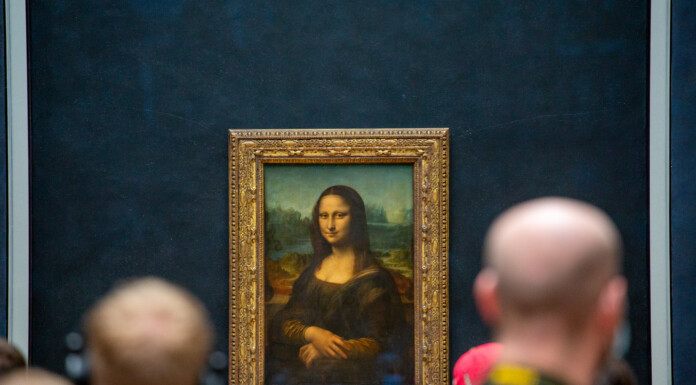Another famous painting has been struck by soup.
The Mona Lisa at the Louvre in Paris had pumpkin soup hurled at it on Sunday by environmental protesters, where it splattered across the protective glass barrier shielding the painting.
This demonstration was protesting against a “fundamental right to food”, according to the group responsible, called Riposte Alimentaire [Food Counterattack].
It’s not the Mona Lisa’s first time being the victim of a sloppy protest.
In 2022, a man disguised as an elderly woman smeared cake all over the glass cabinet, urging people to think of the earth and climate before he was tackled by security.
Later that year, Vincent Van Gogh’s celebrated Sunflowers oil painting had two cans of soup thrust at it by protesters in London’s National Gallery from two members of the climate activism group Just Stop Oil, who also glued themselves to the wall.
One of these activists used the painting’s value and historical significance to demonstrate the point she was trying to make.
“What is worth more, art or life?” she asked the shocked crowd, palm glued to the wall and bright orange broth dripping onto her shoulders from its glass.
“Is it worth more than food, than justice, are you more concerned about the protection of a painting or the protection of our planet and people?”
Critics of this type of protest argue that the destruction of an esteemed piece of art for the point of protest doesn’t effectively demonstrate the cause being argued.
They also claim that the destructive, performative nature of vandalism does more to irate people than it does to raise awareness or change minds about a wider issue at play.
Supporters of this style of protest argue that it’s an effective way to get conversations started and through aggressive, exhibitionist action, cause systematic change.
At the end of last year, Te Papa’s exhibition Signs of a Nation Te Tiriti o Waitangi was damaged when a person abseiled down to the display and spray painted over its English text.
The rest of the group – Te Waka Horua – held banners and explained their actions using a megaphone, stating that the English treaty was not a direct translation.
A spokesperson for Te Papa said that while the museum respects the right to protest, they were disappointed the group had damaged the display.
Protesters from Te Waka Horua said that they had tried all other avenues for trying to communicate concerns, including emailing and petitioning.
In any case, the following week, Te Papa announced that the display would be renewed, with spokespeople confirming that the recent protest action was what had sparked the move.
“We have heard the message of this protest action, and we have heard the many and varied responses to it.”
Protest has always been a crucial tool for creating change and sparking discussion, though it’s likely that its methods will always be a matter of debate.
I can’t say in this case if defacing a national exhibit with historical documents was the right thing to do, but it appears that – performative as it was – it was effective.
It might be too soon to tell with the soup.



This is not a protesters who destroys material legally on display or blocking roads they are rioting and need to be arrested and charged. The last government had allowed bad systems and policies to start. The new government has a hard job ahead to change bad 👎 systems and policies the last government allowed. There are to many groups braking the laws put there by a democracy. Freedom has rules ? Don’t like it go live in a communist or dictatorship place 🤔.